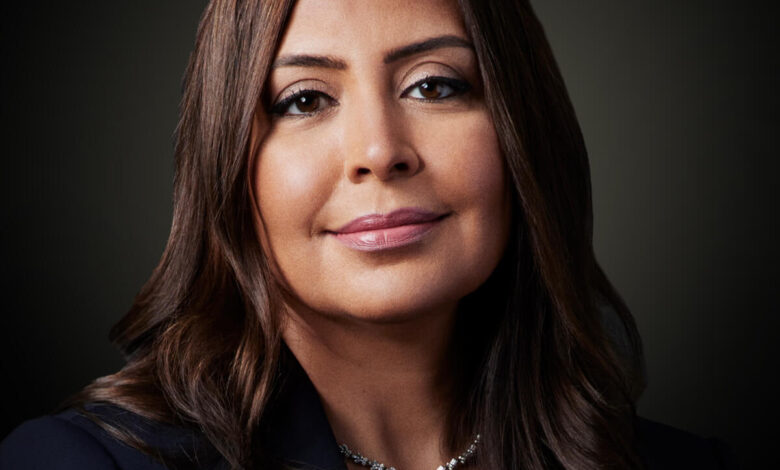
Leading Global Asset Managers Expanding in the Middle East
Overview and Expansion Plans
State Street Global Advisors (SSGA), the asset management arm of State Street Corporation, has significantly strengthened its foothold in the Middle East. With the reopening of its office in the Dubai International Financial Centre and maintaining a strong presence in Abu Dhabi, SSGA is set to enhance its operational capabilities in the region. The company, which manages over $4.3 trillion in assets globally, has been a key player in the Middle East since establishing its first local presence in 1992.
Regional Hubs and Growth Strategy
SSGA’s strategic expansion in the Middle East involves consolidating its asset management activities in Dubai and Riyadh, moving from its earlier operations in Abu Dhabi. This shift aims to leverage the dynamic economic landscape of the GCC, driven by diversification programs and a growing affluent clientele. The company plans to double its team of asset managers in Dubai and Riyadh to 30 by the end of the year, reflecting its commitment to the region.
Key Drivers and Market Opportunities
The Middle East market presents a compelling growth opportunity for SSGA, underscored by the region’s remarkable wealth accumulation and the expansion of financial intermediary markets. The presence of major sovereign wealth funds like the Abu Dhabi Investment Authority and the Public Investment Fund in Saudi Arabia highlights the untapped potential. SSGA is focusing on exchange traded funds and outsourced investments to capitalize on these opportunities, aiming to play a significant role in developing the capital markets and portfolio management landscape in the region.
BlackRock
BlackRock, the world’s largest asset manager, has significantly expanded its presence in the Middle East, particularly focusing on Saudi Arabia, the UAE, and Qatar. With over $10 trillion in assets under management, BlackRock caters to institutional and high-net-worth clients in the region.
Investment Focus in the Middle East
BlackRock has developed strategic partnerships with local financial institutions and sovereign wealth funds, such as the Public Investment Fund (PIF) in Saudi Arabia and the Abu Dhabi Investment Authority (ADIA) in the UAE. These collaborations aim to launch investment strategies focused on regional equities and develop tailored investment solutions.
Growth Strategies and Key Markets
In Saudi Arabia, BlackRock’s growth is highlighted by the establishment of BlackRock Saudi Arabia. This entity is geared towards managing investments and operating funds, significantly enhancing the local asset management industry. The firm’s expansion plans include increasing its product offerings and strengthening distribution capabilities across the Gulf Cooperation Council (GCC) countries.
Partnerships and Regional Presence
BlackRock has announced the creation of a Riyadh-based multi-asset class investment platform, in partnership with PIF. This platform, anchored by a substantial investment mandate, aims to support the economic transformation in Saudi Arabia by attracting foreign institutional investment and broadening local capital markets.
Vanguard
Vanguard, established in 1975, has consistently prioritized investors, positioning itself as a trusted name in the investment sector. While specific details on Vanguard’s initiatives in the Middle East are not directly outlined, the region’s dynamic economic growth and the introduction of investor-friendly policies like the UAE’s “golden visa” and family wealth centers indicate a fertile ground for financial entities. The Middle East’s strategic initiatives and regulatory reforms are shaping it into a hub for wealth management, attracting global players. Vanguard’s broad market strategy, emphasizing sound financial principles and a cautious approach to inflation and interest rates, suggests a prudent expansion and investment approach that could align well with the Middle East’s burgeoning financial landscape.
Fidelity International
Fidelity International has been actively enhancing its investment strategies in the Middle East, focusing on emerging markets across the region. The firm invests significantly in equities of companies headquartered in or primarily operating out of less developed countries within Central, Eastern, and Southern Europe, as well as the Middle East and Africa. This strategic focus is evident from their Emerging Europe, Middle East, and Africa Fund, which allocates a substantial portion of its assets to these markets.
Investment strategies in the region
Fidelity’s approach includes a strong emphasis on sustainable investing, as showcased in their ESGenius Chart Room Podcasts. These initiatives reflect the company’s commitment to integrating environmental, social, and governance factors into investment decisions, particularly relevant in the volatile economic backdrop of the Middle East.
Key growth markets
Notable geographic exposures for Fidelity include significant investments in Saudi Arabia and South Africa, highlighting these nations as key growth markets within their investment strategy. The firm’s targeted approach helps in capitalizing on the unique market dynamics and opportunities presented by these regions.
Recent achievements and future targets
Fidelity International continues to achieve milestones with their focused funds, such as the Fidelity Funds – Emerging Europe, Middle East, and Africa Fund. Looking forward, the firm aims to further expand its footprint and deepen market penetration in these regions, adapting to economic changes and leveraging local market trends to maximize investor returns.
JP Morgan Asset Management
Investment Strategies and Regional Focus
JP Morgan Asset Management has demonstrated a robust commitment to the Middle East, leveraging its historical presence and financial expertise. The firm manages a diverse portfolio, including significant involvement in the UAE’s bond market through the Chimera JPMorgan UAE Bond UCITS ETF. This initiative highlights their focus on providing innovative financial products tailored to the regional market’s needs.
Expansion Plans and Key Milestones
Since the 1960s, JP Morgan has progressively expanded its footprint in the Middle East. Notable milestones include the opening of their Dubai office in 2007 and the Abu Dhabi office in 2010. Recently, they received approval to upgrade their banking license, enhancing their service capabilities in corporate banking and payment processing across the region.
Partnerships and Collaborations
JP Morgan Asset Management places a strong emphasis on strategic partnerships to bolster their market position. A significant collaboration with Network International aims to enhance their payments solutions across the Middle East, underscoring their commitment to integrating cutting-edge technology and local expertise to serve the dynamic market effectively.
Goldman Sachs Asset Management
Middle East Market Overview
Goldman Sachs Asset Management has expanded its presence in the Middle East, notably with a new office in Abu Dhabi Global Market (ADGM), enhancing its network across the region. This strategic move aligns with the Middle East’s economic growth and increased financial activities, particularly in private credit markets.
Key Growth Drivers and Strategy
In partnership with Mubadala Investment Company, Goldman Sachs has launched a $1 billion fund focusing on private credit opportunities in the Asia Pacific, reflecting a strong commitment to diversify investment strategies. This initiative is managed by an experienced team, indicating a deepened focus on high-quality investments and regional market intricacies.
Future Prospects and Planned Expansions
The collaboration with Mubadala not only underscores Goldman Sachs’s investment in private credit but also sets the stage for further expansion in the Middle East and Asia Pacific regions. The firm’s approach to sustainable and inclusive growth through innovative financial products positions it well for future growth in these dynamic markets.
Schroders
Investment Focus and Market Strategies
Schroders, a global asset and wealth manager, provides a wide range of investment opportunities designed to meet the diverse needs of institutions, intermediaries, and high-net-worth individuals. Their focus on sustainable investing and active ownership is particularly tailored to support clients in reaching net-zero goals. The firm excels in navigating private markets, offering standout opportunities and making a positive impact on both people and the planet.
Expansion Plans in the Middle East
Having established a strong regional presence with its Dubai office over 15 years ago, Schroders continues to expand its footprint in the Middle East. The firm was the first international asset manager to have a regionally based investment team, managing a Middle East equity fund, showcasing their long-term commitment to the region.
Key Achievements and Future Targets
Schroders has been instrumental in providing asset management solutions in the Middle East for over 30 years. The partnership with Bank Muscat enhances their capabilities, combining Schroders’ investment expertise with the bank’s robust distribution network. Looking ahead, Schroders aims to deepen its market penetration and continue fostering strategic relationships to drive positive outcomes for its clients.
Franklin Templeton
Franklin Templeton has established a robust presence in the Middle East since 2000, with its regional hub in Dubai serving as a pivotal point for its operations across the Gulf and Eastern Mediterranean. This office supports a wide array of functions from investment research to client servicing, underpinning Franklin Templeton’s commitment to the region.
Regional Investment Strategies
The firm’s investment strategies in the Middle East focus on Global Sukuk, Regional Fixed Income, and Emerging Market and Frontier Equity. These strategies are tailored to leverage the dynamic economic landscape and demographic trends in the region, particularly in countries like Saudi Arabia and the UAE.
Growth Plans and Key Markets
Franklin Templeton aims to capitalize on the Middle East’s economic growth, driven by extensive giga-projects and fiscal expansions in countries like Saudi Arabia and the UAE. The firm’s growth plans are aligned with the region’s Vision 2030 initiatives, which are set to transform the economic makeup of these nations.
Partnerships and Local Presence
In the Middle East, Franklin Templeton has cultivated strong partnerships and a significant local presence, enhancing its ability to offer tailored investment solutions. The firm’s collaboration with local financial entities and adherence to regional regulatory standards exemplify its integrated approach to business in the Middle East.
UBS Asset Management
Investment Initiatives in the Region
UBS Asset Management has been actively expanding its investment initiatives across the Middle East, focusing on enhancing its strategic positioning and product offerings. The firm aims to achieve a <70% underlying cost/income ratio by the end of 2026, driven by cost synergies and an improved product suite.
Key Markets and Growth Drivers
Key markets such as Dubai, United Arab Emirates, and Doha, Qatar have been central to UBS’s growth. The firm has established a dedicated team for corporate finance transactions and a Business Solutions Hub in Qatar, highlighting its commitment to the region’s economic potential.
Future Plans and Expansion Targets
Looking ahead, UBS Asset Management plans to further expand its footprint in the Middle East. This includes scaling up operations and offerings to capitalize on the growing digital economy, projected to increase significantly by 2030. The firm’s strategy aligns with the region’s rapid economic transformations and digital advancements.
Throughout the discourse on the strategic maneuvers of global finance firms within the Middle East, a clear pattern of expansion, partnership, and targeted investment opportunities emerges. Firms like State Street Global Advisors, BlackRock, and Goldman Sachs Asset Management, among others, have not only solidified their presence but are actively contributing to the region’s financial ecosystem. Their collective focus on diversifying investment strategies, fostering sustainable investing, and strengthening strategic relationships underscores a pronounced confidence in the Middle East’s burgeoning market potential.
As these firms continue to advance their regional footprint, they not only promise to enhance the financial landscape but also play a pivotal role in the economic transformation initiatives spearheaded by Middle Eastern countries. The significance of these developments cannot be overstated, given their potential to attract further foreign investment, spur economic diversification, and propel the region toward realizing its comprehensive Vision 2030 goals. In light of these endeavors, the trajectory of the Middle East’s financial sector is poised for a dynamic evolution, marking a new era of growth and opportunity in global finance.







[…] Their sovereign wealth funds, including Abu Dhabi Investment Authority (ADIA), Mubadala, and the Public Investment Fund (PIF), drive strategic investments and support their national […]